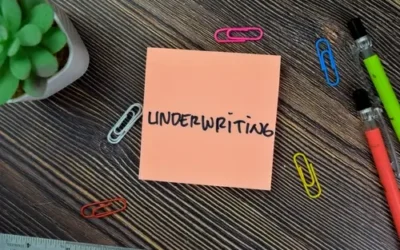VA Loan Rapid Rescore Updates Credit in Days
A VA loan rapid rescore is a lender run process that updates your credit report quickly after you make a real, documented change, like paying down a card or correcting a verified error. Instead of waiting a full billing cycle, many updates can hit in about a week. It is not credit repair, it is fast reporting of new facts.
How the rapid rescore process works
- Lender initiated only: You cannot order a rapid rescore on your own, it must be started by the mortgage team handling your loan file.
- Proof is required: You must provide documentation showing the change is real, like a creditor letter, updated statement, or proof a payment cleared.
- Targeted updates only: The rescore focuses on specific accounts that changed, it does not refresh your entire credit history or remove valid negatives.
- Middle score focus: Many files aim to move the middle score to a threshold needed for approval or better pricing, so the action plan is very specific.
Cost in 2026 and who pays
- Per item pricing: Rapid rescore charges are often per account per bureau, which is why lenders only rescore the tradelines that matter.
- Borrower direct charging is limited: Dispute and correction rules under federal law restrict how errors are handled and how fees can be structured, so ask how it is being paid and where it appears.
- Selective bureaus reduce cost: Many files update one or two bureaus instead of all three, depending on which bureau drives the middle score.
- Get it in writing: If any rescore cost flows into closing, make sure it is transparent on your Loan Estimate and final Closing Disclosure.
What score changes to expect
- It can move fast: When utilization drops or a balance update posts, score gains can be noticeable because the model reacts immediately to lower revolving debt.
- Utilization is the lever: Paying a card down below about 10% utilization is often one of the quickest ways to gain points on short notice.
- It does not erase real negatives: Late payments, charge offs, and bankruptcies are not removed by rescore, the rescore only reflects new positive actions that have not posted yet.
- Results vary: Gains depend on your full profile, number of accounts, and how big the balance change is relative to limits.
When a rapid rescore is actually worth it
- Crossing an overlay: It is most valuable when you are just below a lender minimum, like sitting at 615 and needing 620 to get approved.
- Moving into a better tier: It can also be useful when a few points improves pricing, which can reduce payment and cash to close.
- Fixing a verified error fast: If an account is reporting wrong and you have proof, a rescore can reflect the correction faster than normal cycles.
- Not for deep credit repair: If the issue is multiple recent lates or heavy derogatory history, the fix is time and rebuilding, not a rescore.
FAQs
How fast is a VA loan rapid rescore?
Many rapid rescore updates post in about 3 to 7 business days once your lender submits the request with valid documentation. Speed depends on how clean the proof is and how quickly the bureau vendor updates the tradeline.
Can I request a rapid rescore myself?
Will a rapid rescore remove late payments or bankruptcies?
What is a Rapid Rescore?
A rapid rescore is an expedited service provided by credit reporting agencies, typically initiated by a mortgage lender, to quickly update a borrower's credit file. Unlike standard credit updates that can take 30 to 60 days to reflect new information, a rapid rescore can reflect changes within 3-5 business days, sometimes even faster.
It's not a magical fix for poor credit, but rather a way to quickly correct inaccuracies or report recent positive actions that haven't yet appeared on your standard credit report. These actions include paying down credit card balances, correcting erroneous information, or having a tradeline incorrectly reported. This process can be particularly useful for those navigating a VA loan with bad credit.
- Expedited Update: Quickly updates credit reports, usually in days.
- Lender Initiated: Only a mortgage lender can request a rapid rescore.
- Not a Fix-All: Corrects errors or reflects recent positive changes, not long-term issues.
When is a Rapid Rescore Used?
Rapid rescores are most effective in specific scenarios where quick credit score improvement is necessary for mortgage qualification. Common situations include:
Correcting Credit Report Errors
Despite regulations and diligent efforts, credit reports can contain inaccuracies that negatively impact your score. This could be anything from an account that isn't yours, a debt that's been paid off but still shows a balance, or incorrect late payment notations. If you've disputed an error with a credit bureau and have proof of its correction, a rapid rescore can expedite the removal of that negative mark from your report, immediately boosting your score.
This can include issues like settling charged-off credit cards or the need for negotiating pay-for-delete with collection agencies. The Consumer Financial Protection Bureau (CFPB) offers comprehensive guidance on disputing errors.
- Inaccurate Information: Incorrect account balances, payment statuses, or personal details.
- Proof Required: Need documentation showing the error has been corrected by the creditor or bureau.
- Immediate Impact: Removing a significant error can lead to a quick score jump.
Updating Recently Paid-Down Debt
One of the most common and impactful uses of a rapid rescore is to reflect a reduction in credit card balances. Credit utilization (the amount of credit you're using versus your total available credit) significantly impacts your score. If you've recently paid down a large credit card balance to improve your utilization ratio, waiting for the credit card company to report the new balance (which can take a billing cycle or more) can delay your mortgage process. A rapid rescore can get that new, lower balance reflected almost immediately. For more information on how credit utilization affects your score, you can visit MyFICO. Understanding how to improve credit for a VA loan is always a beneficial strategy.
- Credit Utilization: Directly impacts your credit score.
- Expedite Balance Updates: Faster reflection of lower credit card balances.
- Proof of Payment: Lender will need confirmation of the payment (e.g., bank statement, payment receipt).
Adding Recently Reported Positive Activity
Occasionally, new positive credit activity, such as a new loan paid on time for several months, or a new line of credit with a low balance, might not yet appear on your report. If this new tradeline or positive payment history is crucial for meeting lender requirements, a rapid rescore can push that information through faster. This is less common than error correction or debt paydown but can be useful in specific cases.
- New Tradelines: Reflects recently opened accounts with good standing.
- Positive Payment History: Shows a new history of on-time payments.
- Lender Approval: Only pursued if it will significantly impact qualification.
The Rapid Rescore Process
The process of initiating a rapid rescore is straightforward but requires specific documentation and is always handled through your mortgage lender:
- Identify the Need: Your mortgage loan officer will identify if a rapid rescore is necessary and beneficial based on your credit report and loan requirements.
- Provide Documentation: You'll need to provide verifiable proof of the change. For example, if you paid down a credit card, you'll need a statement showing the zero balance, a payment confirmation from the creditor, or a bank statement showing the payment clearing. If it's an error correction, you'll need documentation from the creditor or credit bureau confirming the correction.
- Lender Submits Request: Your lender compiles the documentation and submits the rapid rescore request to the credit bureaus (Equifax, Experian, TransUnion) through their credit reporting agency.
- Credit Bureau Updates: The credit bureaus review the provided documentation and, if approved, update your credit file. This typically takes 3-5 business days.
- New Credit Report Issued: A new, updated credit report with the new scores is generated and provided to your lender.
It's important to note that rapid rescores are not free. The lender usually pays a fee to the credit reporting agency, and this cost may be passed on to the borrower, often as part of closing costs. The CFPB also provides consumer rights regarding credit reports, which is helpful to review.
Benefits of a Rapid Rescore for VA Loans
For Veterans and service members pursuing a VA loan, a rapid rescore can offer several distinct advantages:
- Meet Lender Credit Minimums: If your score is just shy of a lender's minimum VA loan credit requirement, a rapid rescore can push you over the threshold, enabling approval. Even with challenges, it's possible to get a VA home loan with a 580 credit score.
- Secure Better Interest Rates: A higher credit score often qualifies you for a lower interest rate, saving you tens of thousands of dollars over the life of your VA mortgage. Learn more about how your credit score impacts VA loan rates.
- Faster Closing: By quickly resolving credit issues, a rapid rescore can prevent delays in your loan processing and help you close on your home sooner.
- Increased Borrowing Power: A better credit score can sometimes influence your overall borrowing capacity, though income and DTI are still primary factors. This includes assessing your qualifying income for a VA loan, understanding how VA benefits are grossed up, and utilizing military pay for VA loan qualification. You can also calculate your own DTI ratio to see its impact.
The VA itself doesn't set minimum credit scores, but lenders do. Understanding the specific VA loan requirements can help you prepare. This process often interacts with how lenders use an automated underwriting system, or in more complex cases, may require manual underwriting for a VA loan.
Important Considerations and Limitations
- Not for All Situations: A rapid rescore only works for verifiable, recently changed, or incorrect information. It cannot erase legitimate negative history or magically inflate your score without real underlying positive changes.
- Cost Involved: There is a fee associated with rapid rescores, which your lender may pass on. Discuss this upfront.
- Lender's Discretion: Not all lenders offer rapid rescore services, or they may have specific policies on when they will use them. Always confirm with your loan officer.
- Proof is Paramount: Without clear, verifiable documentation from the creditor or credit bureau, a rapid rescore cannot be performed.
- Impact Varies: The actual score improvement from a rapid rescore varies greatly depending on the specific changes being reported and your overall credit profile.
Before considering a rapid rescore, it's always advisable to ensure all your financial ducks are in a row. Resources from the U.S. Government on managing debt can be a good starting point for overall financial health, and it's also helpful to understand the difference between consumer scores and the mortgage credit scores lenders use.
The Bottom Line
A rapid rescore is a valuable tool in the mortgage lender's arsenal, specifically designed to expedite credit score improvements when time is of the essence. While it won't fix long-standing credit problems, it can be incredibly effective for correcting errors or quickly reflecting recent positive financial actions, like paying down debt.
For VA loan applicants, utilizing a rapid rescore effectively can mean the difference between getting approved, securing a lower interest rate, and closing on your dream home faster. This can even open doors to other mortgage strategies, like exploring an FHA alternative to a VA loan for Veterans if needed, or planning to refinance FHA to VA loan for Veterans down the line.
Additionally, a stronger financial standing makes options like a non-occupying co-borrower FHA loan more accessible. Understanding rapid rescores for VA mortgage credit is a crucial step. Always work closely with a knowledgeable VA loan specialist who can assess if a rapid rescore is the right strategy for your unique situation and guide you through the process.
Frequently Asked Questions About Rapid Rescores
What is a rapid rescore?
A rapid rescore is an expedited process initiated by a mortgage lender to quickly update a borrower's credit report with new, verifiable information, typically reflecting changes within 3-5 business days.
Who can request a rapid rescore?
Only a mortgage lender or another financial institution with a permissible purpose can request a rapid rescore directly from the credit bureaus.
How quickly does a rapid rescore update my credit score?
A rapid rescore typically updates your credit score and report within 3-5 business days after the lender submits the request and supporting documentation to the credit bureaus.
What types of changes can a rapid rescore reflect?
Rapid rescores are primarily used to reflect corrections of credit report errors or the updating of recently paid-down debt, especially on revolving credit like credit cards.
Is there a fee for a rapid rescore?
Yes, there is usually a fee charged by the credit reporting agency for a rapid rescore, which the mortgage lender may pass on to the borrower as part of the loan's closing costs.
Can a rapid rescore fix bad credit quickly?
No, a rapid rescore cannot magically fix long-standing bad credit or erase legitimate negative history. It is only effective for reflecting recent, verifiable positive changes or correcting specific errors on your credit report.
Why is a rapid rescore beneficial for a VA loan?
For a VA loan, a rapid rescore can help a borrower quickly meet a lender's minimum credit score requirements, qualify for a better interest rate, and accelerate the loan closing process by addressing minor credit issues promptly.
What documentation is needed for a rapid rescore?
You'll need verifiable proof of the change, such as a statement showing a zero credit card balance, a payment confirmation from the creditor, a bank statement showing a payment clearing, or documentation from the creditor or credit bureau confirming an error correction.
Are all mortgage lenders willing to perform a rapid rescore?
No, not all mortgage lenders offer rapid rescore services, or they may have specific policies on when they will use them. It's important to discuss this option with your loan officer upfront to see if it's available and applicable to your situation.
How significant of a credit score improvement can I expect from a rapid rescore?
The actual score improvement from a rapid rescore varies greatly. It depends on the specific changes being reported (e.g., removing a major error vs. slightly lowering utilization) and your overall credit profile. Significant errors removed or large debt paydowns tend to have the most impact.







